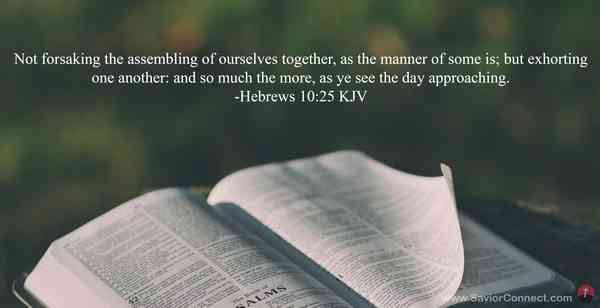
There are various practices in most of our African cultures whose origins and meanings have been lost. Most of these practices were passed by word of mouth from one generation to the next over thousands of years. As such, it was inevitable that the original meanings got distorted or lost completely.
sundayword BY PROSPER TINGINI
It is a fact that a verbal chain of communication erodes original facts and the truth is eventually lost with time. An absence of records greatly affected most traditions. If we go back to the Lord our God’s earliest interactions with mankind, we would be surprised that a large chunk of our African traditions emanated from recorded historical and religious facts used to compile our modern day Bible. His instructions to mankind helped to shape our culture significantly. The holy Bible can assist us to trace back to the origins of some of our African practices.
We can use a few examples to show a direct link between some of our cultures and God. He commanded humanity to do certain practices for specific divine purposes. One of these unique traditions is a habit whereby whenever we slaughter animals or fowls for food, we cut the throats to let the blood come out. Yet, when you ask anyone why we do it, nobody seems to know why. Biblical scriptures can help us to unlock some of these mysteries. In Genesis 19: 3-4; God instructs Noah and sons, the only recorded survivors of the Almighty induced floods as follows; “Every moving thing that lives shall be food for you; and as I gave you green plants, I give you everything. Only you shall not eat flesh with its life; that is its blood”. The reason for this is fully explained generations later to the people at Mt Sinai by the Lord our God. In Leviticus 17: 11, God explains; “For the life of flesh is in the blood; and have given it for you upon the altar to make atonement for your souls, for it is the blood that makes atonement, by reason of the life”. Doesn’t this link our culture to God and also to Christianity which personifies the death of Christ to the forgiveness of our sins through the shedding of His blood, as a sacrificial lamb? Life is in the blood and life belongs to God. Therefore, the blood which carries the life, belongs to God and should not be eaten by man.
Another example of God’s influence on our culture is the subject of circumcision. A number of African traditions of varied religions practise the custom of circumcision, yet again if you ask why it’s done, the cultural leaders give conflicting theories. Again, the Bible can assist us to trace the divine origin of that practice. The Almighty made a covenant with mankind, through Abraham, that He was to be our God and us mankind to be His people, but He required a signature to that agreement to be inscribed in the flesh of man. In Genesis 17: 11-14, the Lord our God introduced this practice to mankind by instructing us; “Every male among you shall be circumcised. You shall be circumcised in the flesh of your foreskins, and it shall be a sign of the covenant between me and you. He that is eight days old among you shall be circumcised; every male throughout your generations, whether born in your house, or bought with your money from any foreigner who is not of your offspring, both he that is born in your house and he that is bought with your money, shall be circumcised. So shall my covenant be in your flesh an everlasting covenant. Any uncircumcised male who is not circumcised in the flesh of his foreskin shall be cut off from his people; he has broken my covenant”. Even our own cherished Jesus Christ followed this culture as highlighted in the Bible. Luke 1: 21 reads: “At the end of the eight days, when He was circumcised, He was called Jesus, the name given by the angel before He was conceived in the womb”.
Even before the advent of Christianity in our African region, there was already a custom that sanctified every seventh day of the week in which no one was allowed to work in the fields on that particular seventh day. In Shona tradition, this day is normally referred to as chisi. The traditional leaders give confusing and conflicting reasons for its origin. In Ndebele tradition it’s called izilo. Biblical scriptures refer to this day as the Sabbath, although in some traditions this cultural day is still being honoured separately. Its origins are linked to the Sabbath day as per God’s instructions to mankind, which then became part of our culture. It is biblically accepted that it took the Lord our God seven days to finish His words of creation, thus then proclaiming the seventh day as a holy day and a rest day in His honour. It was also God’s creation of the weeks.
In Exodus 20: 8-11 God directed: “Remember the Sabbath day, to keep it holy. Six days you shall labour, and do all your work, you, or your son, or your daughter, your manservant, or your maid servant or your cattle or the sojourner who is within your gates; for in six days the Lord made heaven and earth, the sea, and all that is in them, and rested on the seventh day; therefore the Lord blessed the Sabbath day and made it holy”.
Among other traditions that have survived many thousands of years across generations is the practice of paying a bride price for a woman on marriage or for just taking away a woman’s virginity. Our African culture requires a man to pay a bride price on marriage. Sometimes a man pays “damages” in the case when a man sleeps with a woman who is a virgin or impregnates a woman but does not wish to marry her. In Shona the bride price is called roora and its called lobola in the Ndebele language. Different views are advanced as to the real significance of this practice. It is interesting to note that the origin and purpose for the bride price can again be traced back through God’s instructions to mankind as per biblical records. It’s a divine practice now being manipulated and at times misapplied.
- Chamisa under fire over US$120K donation
- Mavhunga puts DeMbare into Chibuku quarterfinals
- Pension funds bet on Cabora Bassa oilfields
- Councils defy govt fire tender directive
Keep Reading
Deuteronomy 22: 28-29, God formally introduced the concept of the bride price by making a decree, saying; “If a man meets a virgin who is not betrothed [single], and seizes her and sleeps with her and they are found, then the man who lay with her shall give to the father of the young woman fifty shekels of silver, and she shall be his wife, because he has violated her. He may not put her away all his life”. God originally meant the bride price to be exclusively reserved for virgins. This, however, has been turned around to cover marriages for all women regardless of their background or status.
There are various other cultural practices which have a direct link with God, which are too numerous to mention. We will look at a few others in the next installment. The Christian missionaries who accompanied imperial colonisers to Africa and beyond transformed cultures by introducing Jesus Christ and Christianity to the different colonised cultures. Some traditions which have a very close alignment with God’s direct instructions to mankind suffered a severe beating from left, right and centre as they were labelled as pagan and condemned.
Prosper Tingini compiled a book titled, God’s Constitution for Mankind — The Laws and Commandments. His contact details are 0771 260 195 or email: [email protected].











